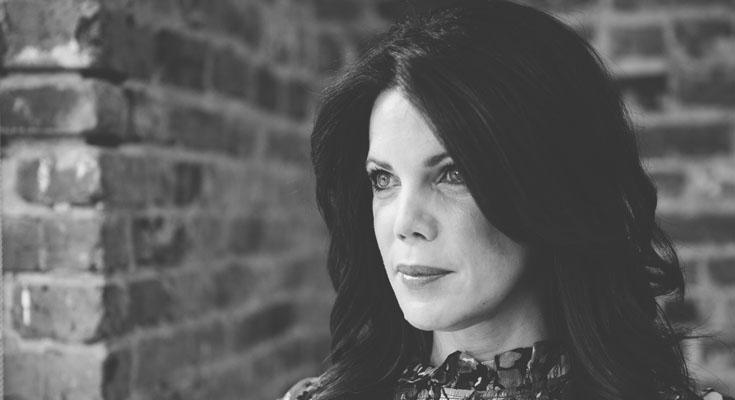"Mom. I think you should try it."
Easy for her to say, as I stood ankle-deep amid a snowstorm called Izzy, a Saskatchewan Screamer.
We chatted via FaceTime in snow that blew hither and yon, nearly like a movie set, outside our Spartanburg area hotel.
For the record, Wesley is witty and profound. At times growing up, I did not know how to parent her.
Her arguments, even as a bright-pink, it's-not-even-summer, goggle-wearing child, were calm, logical, and reasonable.
Right now? From the comfort of her West Virginia University apartment, I was not so sure. Did she see where I was? Or was my iPhone's camera clouded?
Yes. Wes knows how to drive in snow. Real-life in the form of an internship demanded that she figure it out.
That whole, Mountaineer's Go First vibe, I think.
But who was she to give us advice?
Just throw it into 4-wheel drive and go. But go slow!"
Chris had to get home. He listened to our call.
"So, she thinks we can make it?"
"Yes." Like Flash Gordon, he started the car a nanosecond after she said go.
Did we panic? Did we ask ourselves what we were thinking?
Yes. Yes, we did.
Still.
We took our daughter's advice.
We threw our trusty rental car into snow mode and headed out.
For 120 white-knuckled minutes, a quiet dread kept our mouths shut and our hearts in fervent prayer.
Only in hour three did it finally thaw out.
It still snowed. But the roads cleared.
When I told Chris about thoughts for this week's column on being salt and light, he asked a simple question.
What kept our car on the road, so it didn't slide all over the place?
What was it that kept the tires moving even in thick slush?
The answer?
Sodium Chloride.
Both irritant and a preservative, the tiny but mighty particle kept us on I-85.
If we are in Christ, isn't that what we're to be?
Salt?
In ancient times, salt was so valuable that soldiers in the Roman army were sometimes paid with salt instead of money. Their monthly allowance was called "salarium" ("sal" being the Latin word for salt). This Latin root can be recognized in the French word "salaire," — and it eventually made it into the English word "salary."
I have an entirely new appreciation for salt.
Not just for its ancient value or its relationship to the word salary.
Instead, in Christ, being salt is part of our calling.
So.
What does that mean?
Being salt looks like the Concerned Doctor's Group, the Front Line Critical Care Consortium, and others.
Health care providers who daily lay their lives on the line.
Not just for their patients.
But for their livelihood.
Some are being investigated.
Some have had their names and reputations destroyed.
Some are fighting for their medical lives.
Dr. Meryl J. Nass, who got a license to practice medicine in Maine in 1997, had her license "immediately" suspended for 30 days after a board of investigation and review of complaints against her on Jan. 12, according to a suspension order from the Maine Board of Licensure in Medicine.
"I have no comment about submitting to a neuropsych exam, except that the board ordered me to do so on shaky grounds," Nass told McClatchy News, adding that she's had her license for a total of 41 years.
Her trouble? She spoke against the narrative. She prescribed ivermectin and hydroxychloroquine.
These doctors are pushing back against a once-vaunted healthcare system.
A system that has but one narrative, or else.
A system that is not interested in early, life-saving treatment.
A system that stopped taking care and started taking names.
These health care workers, like Dr. Nass, in Maine and many others right here in Alabama, did not spoil for a fight.
But, when the fight came, they were ready.
They did not back down.
They're working to preserve what's good.
Even when it meant being an irritant to the system.
That's being salt.
An irritant and a preservative.
It's literal and figurative.
Salt literally kept us on the road this weekend.
But its symbolic properties can help us remember who we're supposed to be as we fight to preserve our democracy.
God did not call us to become sugary sweetness.
But to be the Salt.
An irritant.
And a preservative. "You are the salt of the earth. But if the salt loses its saltiness, how can it be made salty again? It is no longer good for anything except to be thrown out and trampled underfoot.” (Matthew 5:13)
Amie Beth Shaver is a speaker, writer, and media commentator. Her column appears every Wednesday in 1819 News. Shaver served on the Alabama GOP State Executive Committee, was a candidate for State House 43 and spokeswoman for Allied Women. The views and opinions expressed here are those of the author and do not necessarily reflect the policy or position of 1819 News. To comment, please send an email with your name and contact information to Commentary@1819News.com.









